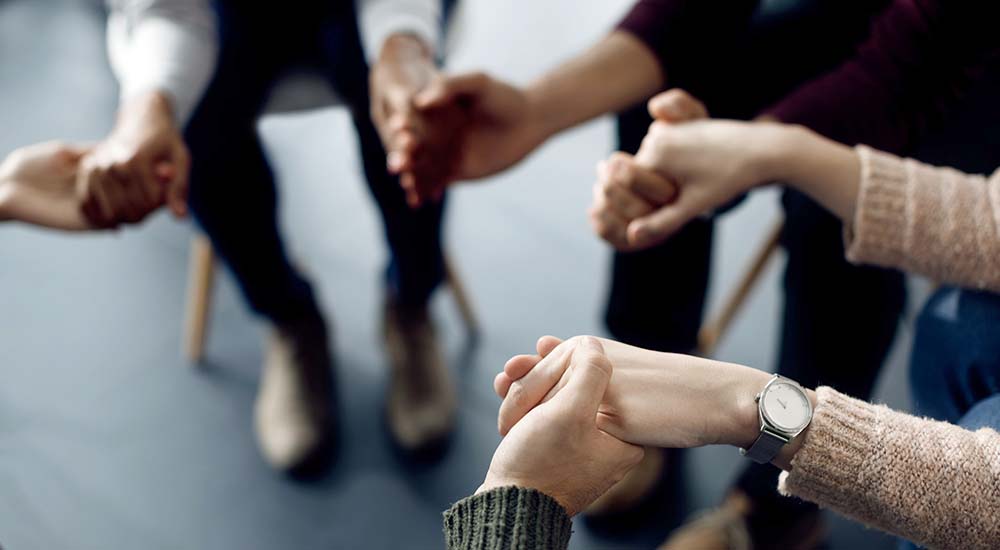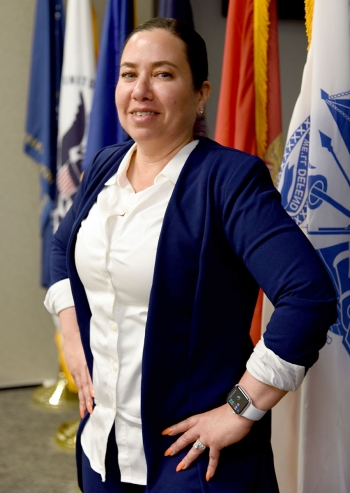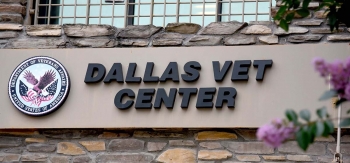Serving and caring for Veterans never stopped during the COVID-19 pandemic at VA Vet Centers, it just looked a little different. The same is true for treating victims of military sexual trauma (MST).
VA Vet Centers got creative and changed how they would care for their Veterans. Leadership implemented new guidelines to prevent the spread of COVID-19, causing in-person appointments and groups to switch to phone or video appointments.
During these times, Jennifer Torres-Christian, readjustment counselor at the Dallas Vet Center, started a new virtual support group for women Veterans called Coping with Military Sexual Trauma. The eight-week MST support group focuses on a new topic each week.
“This is a new support group for military sexual trauma and it’s mostly psychoeducational,” Torres-Christian said. “It’s psychoeducational basics and goes into PTSD 101, pretty much how the brain works with trauma, how that affects your body, then it goes into some mindfulness, some other coping skills and different therapies that might help the women.”
One third of enrolled women Veterans have experienced military sexual trauma
According to VA data from 2020, one in three women Veterans revealed that they have experienced military sexual trauma when screened by their VA provider. Women Veterans of all backgrounds, such as era of service, rank, age, race and sexual orientation have experienced MST.
During the pandemic, Torres-Christian reached out to other Vet Centers for support and educational material to get the MST support group going. She then started the program with a pilot group of two women Veterans.
“The pilot group went really well,” she said. “The Veterans that were involved made most every session and they said they really benefited from it. They looked forward to our session each week and they got some really good information.”
The advantage of the virtual group for many of the women is the convenience of making the sessions from anywhere they happen to be that week through their phone or computer.
“During COVID, we’ve really realized how important technology is,” she added. “You don’t always have to come into the clinic or doctor’s office for an appointment. You can do it on your lunch break or do it without ever leaving your home. It just makes it more accessible.”
“Being able to help was always in me to do.”
Torres-Christian is an Air Force and Navy Veteran, and she deployed to Saudi Arabia in 1991. She worked as a medical service specialist and is now a licensed professional counselor serving her fellow Veterans.
“Eventually, I hope we can keep the support group going weekly,” she said. “We can take the material and mix it in with some other things and really see it grow. I love working with Veterans. I can relate to a lot of them. Being able to help them is something that was always in me to do.”
Vet Centers are community-based counseling centers. They provide a wide range of social and psychological services, including professional readjustment counseling to eligible Veterans, active duty service members, and National Guard and Reserve components and their families.
VA offers readjustment counseling to make a successful transition from military to civilian life or after a traumatic event experienced in the military. Individual, group, marriage and family counseling are offered in addition to referral and connection to other VA or community benefits and services.
Many Vet Center counselors and outreach staff are Veterans. They have experience and can discuss the tragedies of war, loss, grief and transition after trauma.
For more information: https://www.va.gov/health-care/health-needs-conditions/military-sexual-trauma/.
Related blog post: Military Sexual Trauma survivors: You’re Not Alone.
Topics in this story
More Stories
Give your full body the gift of your attention with this week's #LiveWholeHealth practice: Full Body Progressive Muscle Relaxation.
Lulu Bang learned there was a large population of unhoused Veterans in Central Ohio and she wanted to help keep them warm.
For Veterans battling cancer, time is precious. At Dallas VA, one nurse is leading the charge to reduce the hours spent traveling and waiting.








My apologies. I meant to say I run a MEN’s Coping with MST group.
A bit of encouragement–and criticism: When I started the journey toward recovery, I assumed that men never experience MST. I quickly learned that I was very wrong. I am on the other side of things, now, and hope to one day offer hope for recovery to other men. It is amazing how easily we automatically assume there is something wrong with US–when that is furthest from the truth.
I have been in personal counseling, but I will investigate groups, eventually.
I appreciate you making this point, Rob. I facilitate an 8-week Coping with MST group at the South Texas VA. Maybe others do, too.